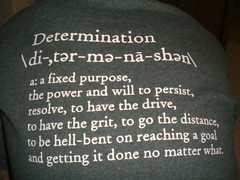As a school girl I never closely questioned how cultures were brought together on the basis of their relative usefulness. Nor did I consider for long the 1960s tragedy of a small Welsh village being dammed for the sake of infrastructure development. There wasn’t a subject in the school curriculum that allowed space for a debate about the pros and cons of progress. Mind you, I did witness the impact of the racial tensions that existed between the skin-head English nationalists and the hard-working and resourceful Indian or Pakistani corner-shop keepers. I do distinctly remember my mum’s distress at the flooding of the village in the Trywern Valley. Nuclear energy production of course has for long now provided grist for potent discussion.
Such questions were and are however asked at university. So in an elective Anthropology unit for my Behavioural Studies degree, I was challenged to consider whether I was happy to be complacent, or be brave enough to have provocative conversations. I explored issues such as that of oil companies dumping waste that then poisoned drinking water in South America, and of the tensions that flared when the effluent from a production plant contaminated rivers that traversed across borders. A most recent example of the by-product of production is that of the Morwell open mine fires in country Victoria.How is it ok for children to be inhaling such noxious fumes for weeks on end?
A recent article in The Conversation makes the claim that universities are business-friendly to the point that academic staff are less inclined to publish anything that questions corporate practices, and that this in turn is limiting the potential for the role of academic institutions having a key role in social transformation. As the authors argue:
It is the role of academic researchers to challenge the political rhetoric and the collusive relationships between government and corporations that allow workers, communities and the environment to be endangered. We can only do this by aligning ourselves more closely with the social movements and campaigns fighting for social justice, rather than with governments, politicians and corporations.
Well put! Follow the link to the Monash lecture if I have piqued your interest.
http://theconversation.com/critical-scholarship-in-a-hostile-climate-academics-and-the-public-25017
http://artsonline.monash.edu.au/criminology/files/2014/02/2014-Criminological-Horizons.pdf
http://www.independent.co.uk/news/uk/this-britain/the-village-drowned-to-give-another-nation-water-2108977.html
http://www.abc.net.au/news/2014-04-16/morwell-community-group-wants-coal-money-be-used/5393518?section=vic



